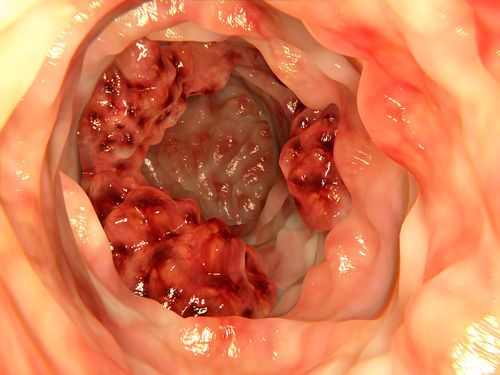Guanylin Hormone Loss Triggers Colon Cancer; Hormone Replacement Therapy Potential Treatment Method

Doctors, for years, have been stressing the importance of balanced hormonal levels for our body’s smooth functioning. While enough has been talked about sex hormones or the lack of them, there are hormones under or overproduction of which can lead to serious conditions like cancer. One among them is guanylin, whose absence can lead to colon cancer, according to a new study. The study, published in the American Association for Cancer Research journal Cancer, Epidemiology, Biomarkers & Prevention, also suggests that guanylin replacement therapy may help reduce risk of colon cancer in susceptible patients.
The team, from Thomas Jefferson University, examined colon cancer samples from 281 patients and compared those tissues to nearby colon tissue that wasn't cancerous. They measured the number of messenger RNAs that translate for the hormone and found that guanylin production decreased 100 to 1,000 times in more than 85 percent of colon cancers tested. Slices of cancerous tissues were also stained for detecting the hormone, but the results were negative. Furthermore, researchers found that guanylin production significantly decreased in people over 50, confirming that older people are more susceptible to colon cancer.
"The fact that the vast majority of cancers stop producing this hormone leads us to believe that guanylin may be driving the growth of the tumors," said senior author Scott Waldman in a statement.
How Does Guanylin Work?
The hormone guanylin is secreted by a type of epithelial cell, called goblet cell, in the colon. GUCY2C (pronounced "goosy toosy" by researchers) is the receptor that is activated by this hormone. Previous studies have suggested that these receptors play an important role in homeostatic mechanisms and ensure DNA damage repair and smooth functioning of physiologic processes, such as electrolyte and water transport in the intestinal cells. They do this by replenishing the skin cells lining the gut.
Since the skin of the gut turns over about once every three days, the proper control and maintenance of the signals that replenish the skin is essential. Diminished or absence of signaling can result in unregulated cell proliferation that can cause cancers.
When guanylin levels decrease, the cells of the colon produce more GUCY2C receptors in order to try and catch any possible signal from the outside of the cell. As a result, cancerous tissues show a high presence of these receptors even when the hormone that activates them to maintain a healthy colon is absent.
How exactly guanylin functions to maintain colon health is something the researchers are still trying to figure out. Moving forward, the team also plans to check the feasibility of hormone replacement therapies in mice, success of which will give way to human trials and hope to the 136,830 men and women who were estimated to be diagnosed with this condition in 2014.
Source: Waldman S, Wilson C, Lin J, et al. The paracrine hormone for the GUCY2C tumor suppressor, guanylin, is universally lost in colorectal cancer. Cancer Epidemiol Biomarkers. 2014.



























